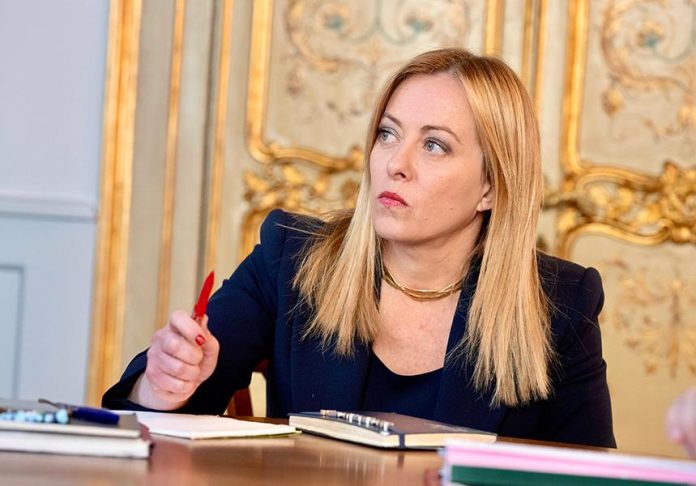It’s been just barely over a year since Italy elected a new government, with many people keen to find out what Meloni’s vision for the European Union is, EU reporter writes.
Italian Prime Minister Giorgia Meloni seeks to co-operate with the European Union, demonstrating strong leadership in international affairs while taking a conservative stance on social issues.
Plenty of commentaries and articles have been written about Meloni’s versatile approach to social policy or her commitment to democratic values, but the question arises as to how she sees Europe.
As leader not only of her party but also of the European Conservatives and Reformists (ECR), Meloni’s key proposal was to promote a Europe of nations and a European project based on fatherlands. Such vague concepts were combined by her and her conservative colleagues into the general idea of a European Confederation.
It is time for the Italian Prime Minister to make a specific proposal on what such an entity would mean in practice.
The ongoing migration crisis unfolding on Lampedusa forces Meloni to emphasise that only a “European solution” can stop the flow of migrants in search of a better life. The reality is that not only Lampedusa or Italy are facing the limit of their capacity to process new arrivals, but the whole EU is under stress. Today this problem affects the whole continent, the whole European Union.
Reality proves that on many levels the EU is already a de facto confederation of nations. Nevertheless, only a fully unified common foreign and defence policy, together with other key Treaty reforms, can transform the existing entity into a true confederation and an institution better suited to serve its people.
Her party’s manifesto last year, a much more moderate document than the one presented at the last European elections in 2019, proposed “relaunching the process of European integration, centred on the interests of the citizens and capable of facing the challenges of our times.”
However, now, with pressure emanating from the East and a number of countries pushing for EU membership, there is a tacit inevitability to the fact that any meaningful enlargement can only proceed with substantive reform of the Treaty.
Prime Minister Meloni needs to set out her own vision of Europe, especially now, as the European elections approach next year. For instance, what the proposal for a NATO European column, announced in her party’s manifesto last year, means in practice.
Yet such proposals are difficult to implement, as they would put Meloni in a position fairly close to that promoted by French President Emmanuel Macron, her ideological rival.
Her policies on social and moral issues are now well known, which is not the case with her plans for Europe. For example, whether she would support a further expansion of Europol’s powers, turning it into a real police force.
Meloni, fully aware of the complexity of the global problems facing her country and the whole continent, must now present a coherent and detailed plan on how to tackle them. She also needs to illustrate how her idea of confederation differs in concrete terms from the federal position held by her progressive rivals.
For these purposes – to reveal what a Europe fit for the 21st century would look like – the EU Parliament is best suited. The sooner Meloni clarifies her position by putting forward a precise proposal for Europe’s future, the more opportunity she will have to shape the debate on the bloc’s future on her own terms.
